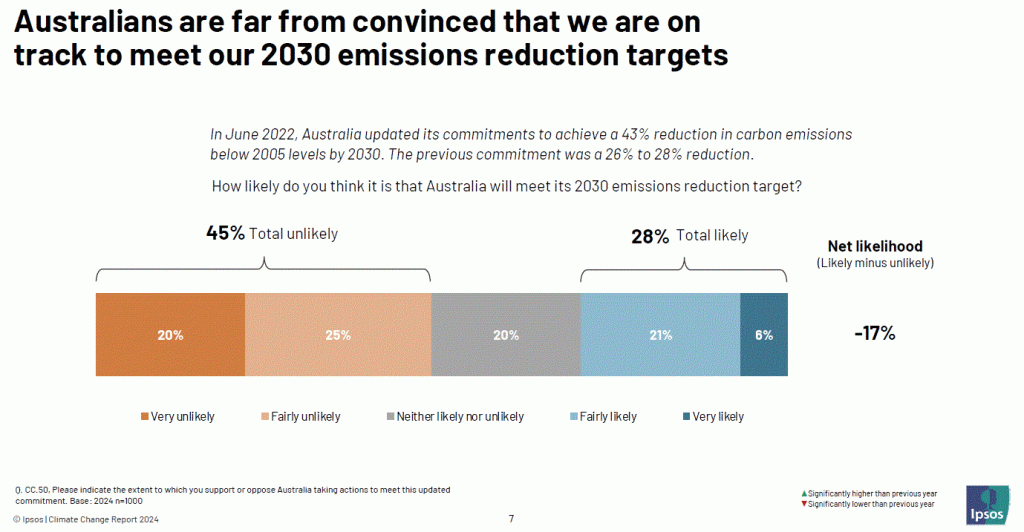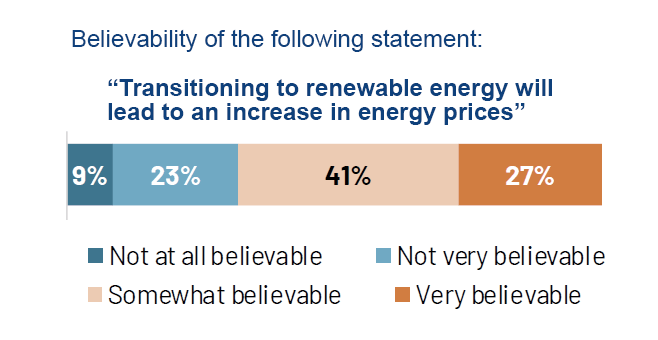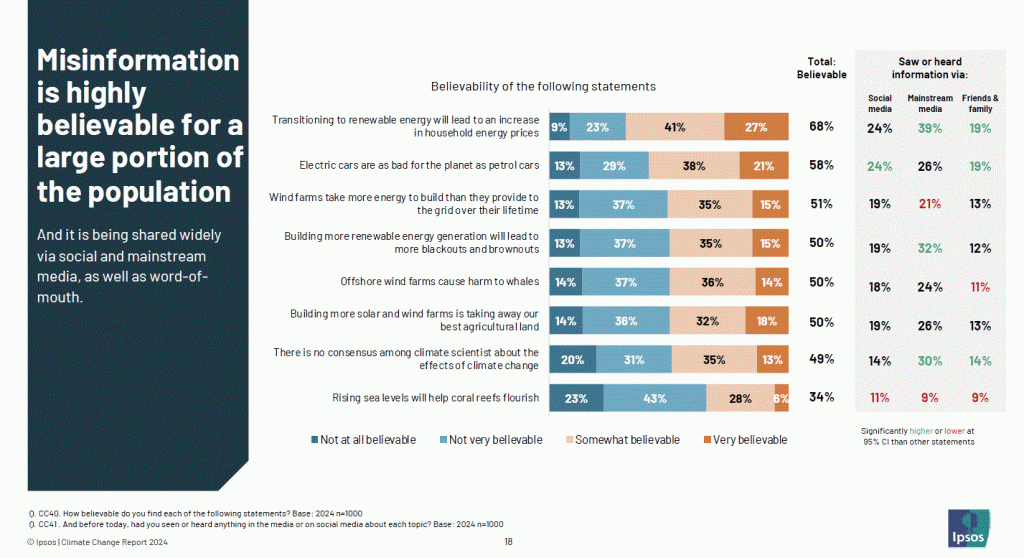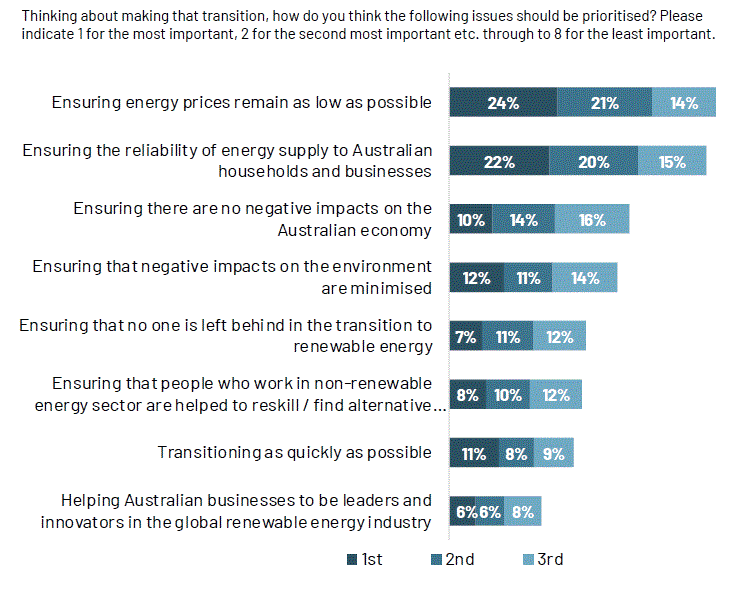By Jo Nova
There is hope: Despite the censorship, and the partisan bias in the media, more than half the country has shaken off the propaganda.
All our institutions and experts have been telling us “renewables are cheaper” for twenty years, yet two out of three people don’t believe them. In a similar vein 58% of people could believe electric cars were just as bad for the environment as petrol cars. 50% believe renewable energy leads to blackouts, causes harm to whales and takes away our best farmland. And half the country agrees there is no consensus among the experts either.
We haven’t had a strong election battle on the renewables transition, but statistics like these suggest that if the Opposition picked up on this fear, they would be pushing on an open door.
And despite higher prices being exactly what happens in every country on Earth, IPSOS arrogantly labels this belief as “Misinformation”.
They also asked people whether they had “seen or heard anything in the social media about this?” But only 39% said they had seen something on this in the mainstream media. So most of the population hadn’t even seen this discussed on TV or radio yet. Imagine how many more people would know that the transition would ramp up electricity prices if the TV news actually interviewed skeptical engineers, NASA astronauts or Nobel prize winners like John Clauser, every now and again.
We are a country divided and cynical. Half the nation don’t believe the CSIRO or the ABC even a bit. Only 40% think it will be good for the economy. Only 32% think it will increase jobs in their area.
Support for the renewables transition is falling away
In the last 2 years, a tenth of those who thought Australia should be “a world leader” in the energy transition have left the ranch.
And the most important thing to the people was not a speedy transition, but cheap electricity and reliable power.
Only 28% think we will meet our Net Zero targets
Boy are they in for a shock…

https://www.ipsos.com/en-au/australians-now-more-concerned-about-green-energys-impact-cost-living-and-electricity-bills
Half the nation still thinks (paradoxically) that switching to solar and wind power will improve air quality. Thirty years of teachers, news-readers and politicians calling carbon dioxide “pollution” sowed this confusion.
See the Epoch Times for more commentary on the survey.
See the crowd at Reneweconomy tie themselves in knots with excuses.
Australians blame wind, solar for high power bills as media campaigns take hold
But it’s not difficult to see why more Australians are now associating wind and solar farms with higher power bills and cost of living more generally, says the Grattan Institute’s Allison Reeve.
“It’s only very recently that we’ve come to this point where renewables have become the cheapest form of energy, so people who don’t think about energy all the time for a living will have a shortcut in their brain and say ‘oh renewables are more expensive’,” she says.
They’re trying to pretend that the idea of “cheap renewables” is a whole new thing that the masses haven’t been trained-to-death with for two decades.


